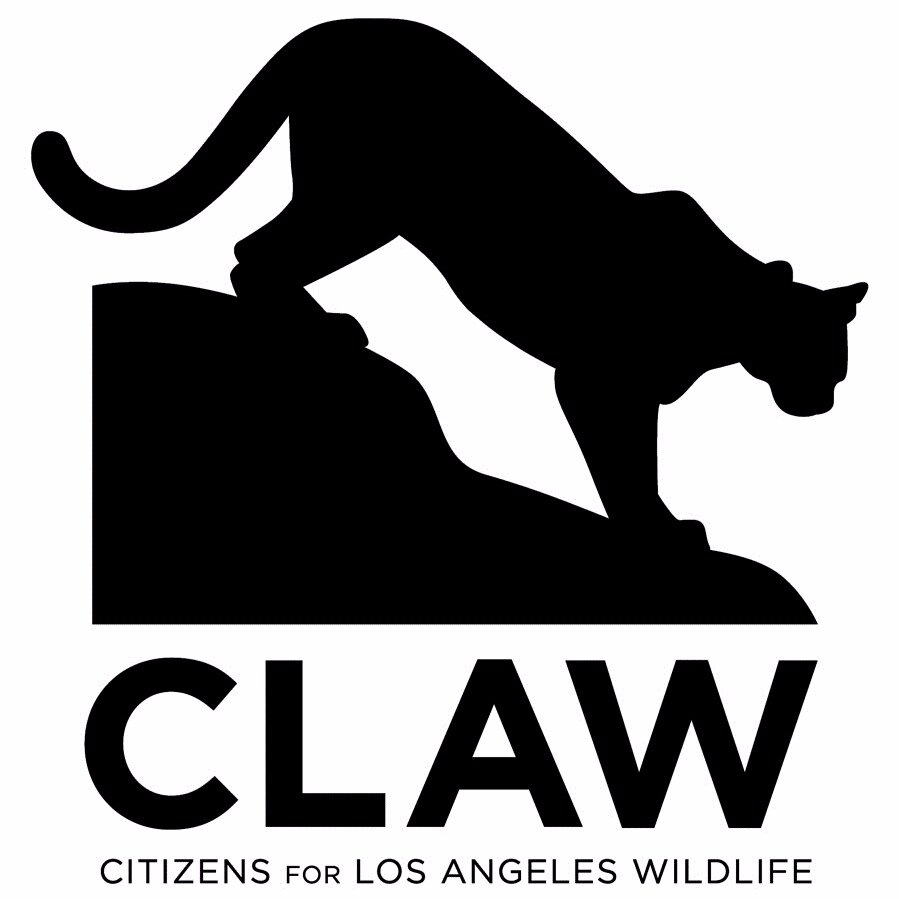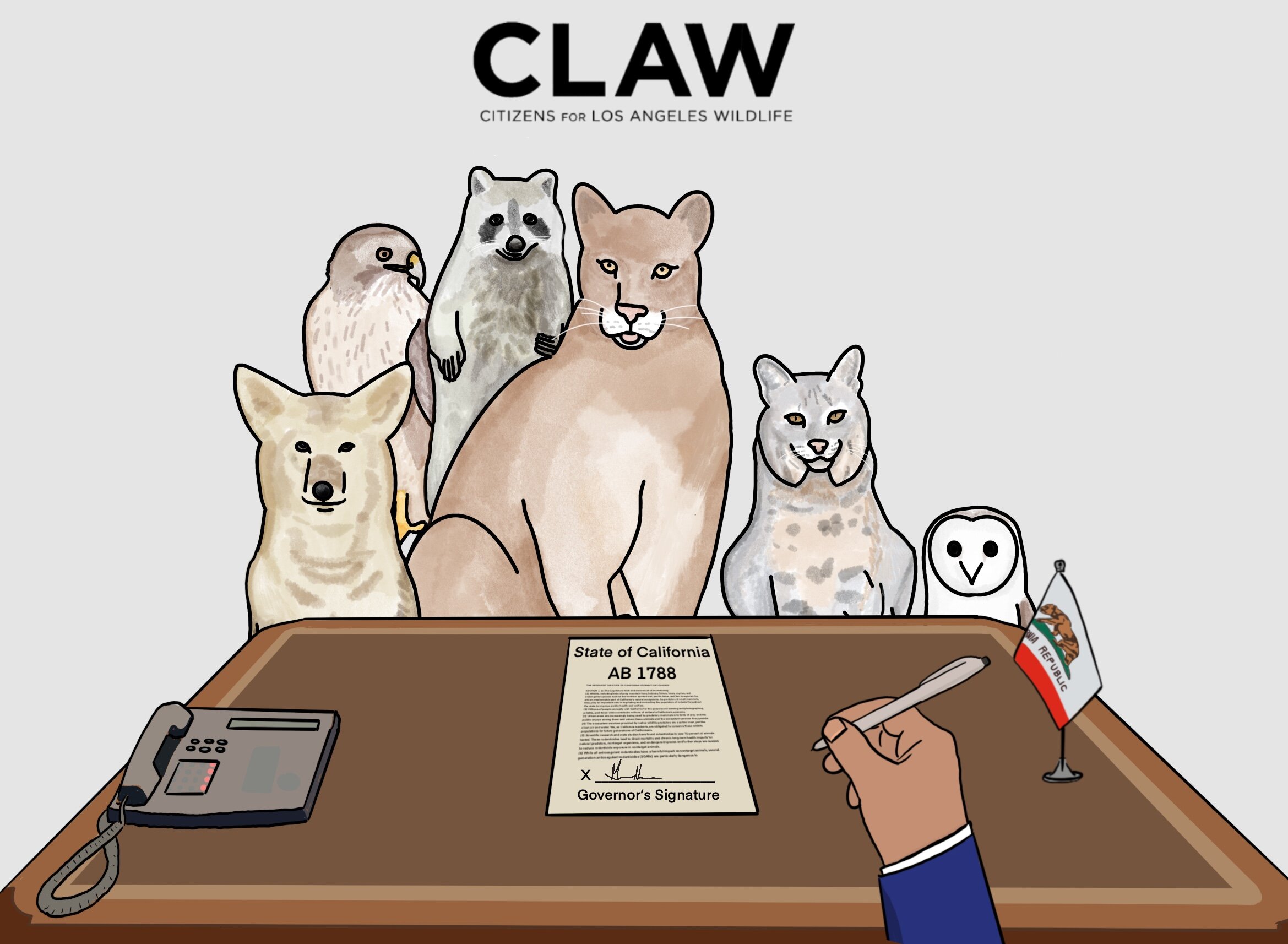California’s Rodenticide Moratorium - AB 1788
Background:
In 2018, CLAW joined a coalition of environmental groups to advocate for an anti-rodenticide bill in California. After years of work, the state bill known as AB 1788 was passed into law starting on January 1, 2021. This bill placed a moratorium on the use of certain rodenticides in California. The use of these poisons has been directly responsible for weakening and killing California's wildlife. For more info on how this happens, check out our rodenticide page.
AB 1788 was the result of the hard work of a coalition of environmental groups in California.
What to do you if you think you have seen an illegal poison being used:
Step 1 - Observe
Take a look at the active ingredient of the poison.
Example of a bait box label. In this case, Bromadiolone is checked as the active ingredient.
If the ingredient is any of the ones listed below, it is not allowed in most residential or commercial uses under AB 1788:
(A) Brodifacoum
(B) Bromadiolone
(C) Difenacoum
(D) Difethialone
If it is not one of the above, it is likely a legal substance (For a detailed list of poisons, click here). If there is no specific poison indicated, you should report this.
A note on exemptions:
Under AB 1788, exemptions can be made for certain medical and pharmaceutical facilities, water supply infrastructure, agricultural operations, invasive species control, and public health needs.
Step 2 - Document
Make a note of the location, the type of poison, the pest control company (if applicable), and any other information that you think may be important. If possible, take a picture of the bait box, including a photo close enough to see which poison is indicated on the label.
Step 3 - Report
Send your info and documentation to your local Agricultural Commissioner. For LA County, you can contact them by phone at (562)622-0426 or by email at pepq@acwm.lacounty.gov. Or you can use their online contact form here. For incidents outside of LA County, you can find local contact info here.
Thank you to all the CLAW supporters who helped turn grassroots advocacy…
…Into statewide policy!




